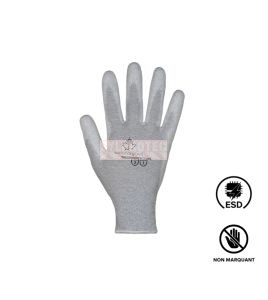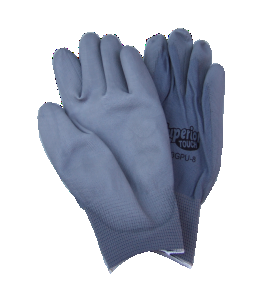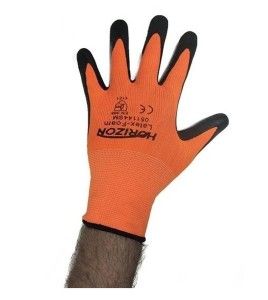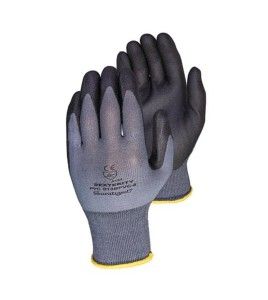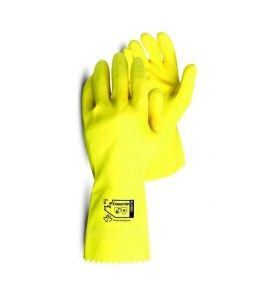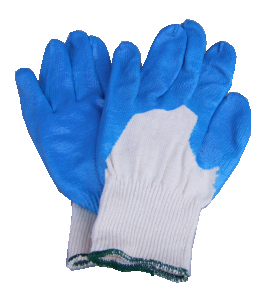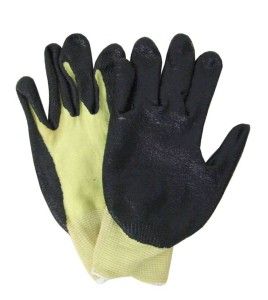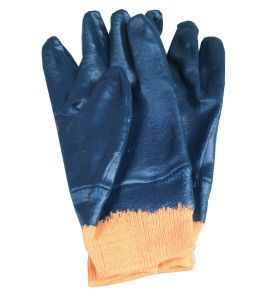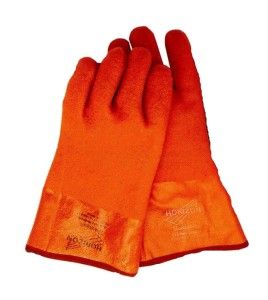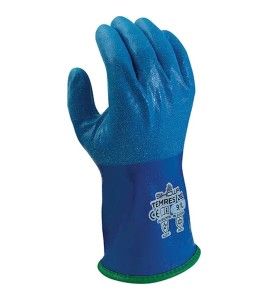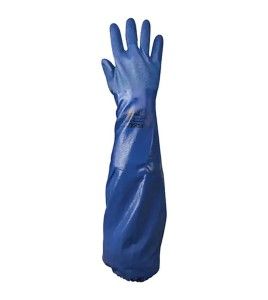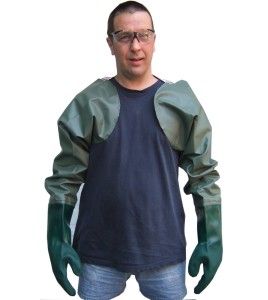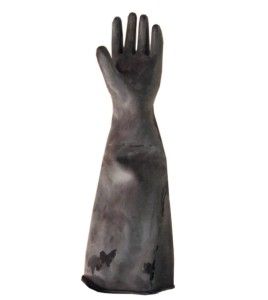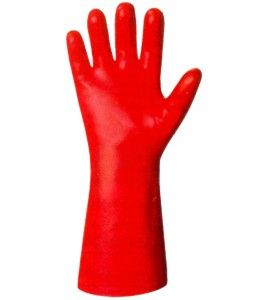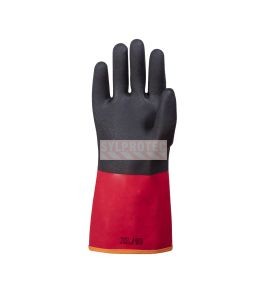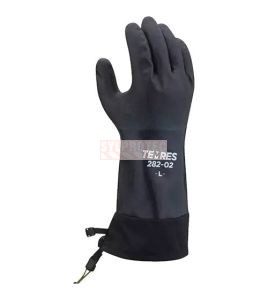Reusable Gloves: Nitrile, Rubber, Latex, Neoprene or PVC
Sylprotec offers a wide range of coated protective gloves for both industries and individual users. To help you choose the right gloves, here are the key selection criteria.
1. Cuff Style
- Knit wrist cuff: Snug fit, ideal for extended wear.
- Open wrist cuff: Easier to remove, perfect for tasks requiring frequent glove changes.
2. Polymer Coating Options
Each material provides different advantages depending on the intended use:
- Natural rubber (Latex): Elastic, flexible, durable, great grip, but allergenic and less resistant to hydrocarbons.
- PVC (Polyvinyl chloride): Abrasion-resistant and effective against acids, but sensitive to heat and UV rays.
- Nitrile: Highly elastic, resistant to cuts, punctures, oils, and some solvents, but less adhesive when wet.
- Neoprene: Flame-resistant and durable against abrasions, but moderately effective against oils.
- Polyurethane: Excellent resistance to punctures, abrasions, tears, oils, and oxidation, but not heat-resistant.
- Polyethylene: Affordable, inert (does not degrade), chemical-resistant, and cold-resistant, but lacks elasticity.
- Butyl rubber: Superior protection against chemicals, oils, and solvents, flexible, but costly to manufacture.
- PVA (Polyvinyl alcohol): Highly resistant to organic solvents, but not effective against aqueous solutions.
3. Chemical Resistance & Durability
For extended exposure, choose gloves with chemical degradation resistance exceeding 8 hours. Consulting a chemical resistance chart
📞Need help? Contact our customer service team to find the perfect solution.
- On sale!
- -$0.45
- On sale!
- -$0.50
- On sale!
- -20%

